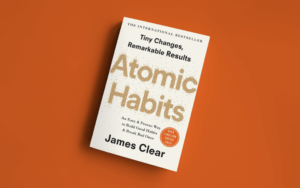Today maintaining optimal health and performance is a priority for many men. One powerful tool that has gained significant traction is intermittent fasting. This eating pattern isn’t just another diet trend—it’s a lifestyle change that can lead to impressive health benefits. Let’s dive into the importance of intermittent fasting, explore its benefits, and understand how to implement it effectively.
What is Intermittent Fasting?
Intermittent fasting (IF) is an eating pattern that cycles between periods of fasting and eating. Unlike traditional diets, it doesn’t specify which foods to eat but rather when to eat them. Popular methods include the 16/8 method, where you fast for 16 hours and eat within an 8-hour window, and the 5:2 method, where you eat normally for five days and reduce calorie intake on the other two days.
Why Men Should Consider Intermittent Fasting
Boosting Testosterone Levels
One of the standout benefits of intermittent fasting for men is its potential to boost testosterone levels. Studies have shown that fasting can increase luteinizing hormone (LH), which stimulates the production of testosterone in the testes. Higher testosterone levels can lead to improved muscle mass, better libido, and enhanced overall vitality.
Want more information on how to boost your testosterone and overall health? Check out our other health and fitness blogs
Enhancing Mental Clarity and Focus
Mental sharpness is crucial in both professional and personal life. Fasting can help enhance cognitive function and clarity. During fasting periods, the body produces more brain-derived neurotrophic factor (BDNF), which supports brain health and improves memory and learning capabilities.
Promoting Fat Loss
For those looking to shed extra pounds, intermittent fasting can be highly effective. By reducing the eating window, the body is more likely to enter a state of ketosis, where it burns fat for energy. Additionally, fasting can improve insulin sensitivity, making it easier for the body to utilize stored fat.
Improving Heart Health
Heart disease is a leading health concern for men. Intermittent fasting has been linked to better cardiovascular health by reducing blood pressure, cholesterol levels, and inflammatory markers. These improvements can significantly lower the risk of heart disease and promote overall heart health.
Boosting Human Growth Hormone (HGH)
Human growth hormone plays a vital role in muscle growth, fat metabolism, and overall health. Fasting has been shown to increase HGH levels, which can lead to better muscle preservation during weight loss and enhanced athletic performance.
Getting Started with Intermittent Fasting
Choosing the Right Method
Intermittent fasting is not a one-size-fits-all approach. It’s important to choose a method that aligns with your lifestyle and preferences. The 16/8 method is a popular choice for beginners due to its simplicity and flexibility. For those with busy schedules, the 5:2 method might be more suitable.
Gradual Adjustment
Transitioning to fasting should be gradual. Start by extending your fasting period by an hour each day until you reach your desired fasting window. This gradual adjustment helps your body adapt and minimizes potential side effects like hunger pangs and fatigue.
Staying Hydrated
During fasting periods, staying hydrated is crucial. Drinking water, herbal teas, and black coffee can help curb hunger and maintain energy levels. Avoid sugary drinks and beverages that can break your fast.
Listening to Your Body
It’s important to listen to your body and adjust your fasting schedule as needed. If you experience dizziness, extreme fatigue, or other adverse effects, it may be necessary to shorten your fasting period or seek guidance from a healthcare professional.
Combining Intermittent Fasting with Exercise
For those who are physically active, combining fasting with exercise can amplify health benefits. Training in a fasted state can enhance fat burning and improve metabolic flexibility. However, it’s essential to monitor your energy levels and adjust workout intensity accordingly.
Nutrient-Dense Eating
When it’s time to eat, focus on nutrient-dense foods that provide essential vitamins, minerals, and macronutrients. Lean proteins, healthy fats, and a variety of fruits and vegetables should be staples in your diet. Avoid processed foods and sugary snacks that can negate the benefits of fasting.

Potential Challenges and How to Overcome Them
Dealing with Hunger
Hunger is a common challenge during the initial stages of intermittent fasting. Drinking water, consuming high-fiber foods, and staying busy can help manage hunger pangs. Over time, your body will adapt, and hunger levels will decrease.
Social Situations
Navigating social situations while fasting can be tricky. Planning ahead and communicating your fasting schedule with friends and family can help. Opt for fasting-friendly social activities like going for a walk instead of meeting for a meal.
Maintaining Consistency
Consistency is key to reaping the benefits of fasting. Establishing a routine and setting clear goals can help you stay on track. Keeping a journal to track your progress and reflect on your experiences can also be motivating.
The Long-Term Benefits of Intermittent Fasting
Longevity and Aging
Research suggests that intermittent fasting may promote longevity by improving metabolic health and reducing oxidative stress. This eating pattern can help protect against age-related diseases and support a longer, healthier life.
Reduced Inflammation
Chronic inflammation is linked to numerous health issues, including heart disease, diabetes, and cancer. Intermittent fasting can reduce inflammation markers, thereby lowering the risk of these chronic conditions and promoting overall well-being.
Enhanced Muscle Preservation
Unlike traditional calorie-restricted diets, intermittent fasting can help preserve lean muscle mass while promoting fat loss. This is particularly beneficial for men looking to maintain strength and muscle definition as they age.
Take a look at our ultimate guide on workout splits for men, if you not only want to preserve muscle but grow your muscle levels.

Improved Gut Health
A healthy gut is essential for overall health. Intermittent fasting can promote a healthy gut microbiome by giving the digestive system a break and allowing beneficial bacteria to thrive. This can lead to better digestion, improved immune function, and a lower risk of gastrointestinal issues.
Intermittent Fasting and Its Impact on Lifestyle
Simplified Meal Planning
Fasting can simplify meal planning and reduce the time spent on food preparation. With fewer meals to plan, you can focus on incorporating quality, nutrient-dense foods into your diet.
Better Sleep Quality
Intermittent fasting can positively impact sleep quality by regulating circadian rhythms and reducing late-night eating. Improved sleep can enhance overall health, energy levels, and cognitive function.
Financial Savings
Eating fewer meals can lead to financial savings. By reducing the number of meals and snacks, you can lower grocery bills and dining expenses, making intermittent fasting a cost-effective health strategy.
Myth Busters
Myth: Intermittent Fasting Causes Muscle Loss
Contrary to popular belief, fasting does not cause muscle loss when combined with a balanced diet and regular exercise. In fact, it can help preserve lean muscle mass while promoting fat loss.
Myth: Intermittent Fasting is Unhealthy
Intermittent fasting is a safe and effective practice for most healthy individuals. However, it’s important to approach it with a balanced mindset and prioritize overall nutrition.
Myth: Fasting Slows Down Metabolism
Fasting does not slow down metabolism. In fact, fasting can enhance metabolic flexibility and improve insulin sensitivity, leading to better energy utilization. A study completed via the National Library of Medicine indicates that intermittent fasting can positively influence metabolic health, enhance hormonal balance, and reduce inflammation, contributing to overall health benefits.
Conclusion
Intermittent fasting is a powerful tool for men seeking to improve their health and performance. By boosting testosterone levels, enhancing mental clarity, promoting fat loss, and improving heart health, intermittent fasting offers a multitude of benefits. With the right approach, this eating pattern can be seamlessly integrated into any lifestyle, leading to long-term health and vitality.
Check out more from the Jon Hopkins Medical Institute for more information on intermittent fasting!





Pingback: Unlock Peak Performance: 10 Natural Remedies for Men's Health - The Masculinity Report